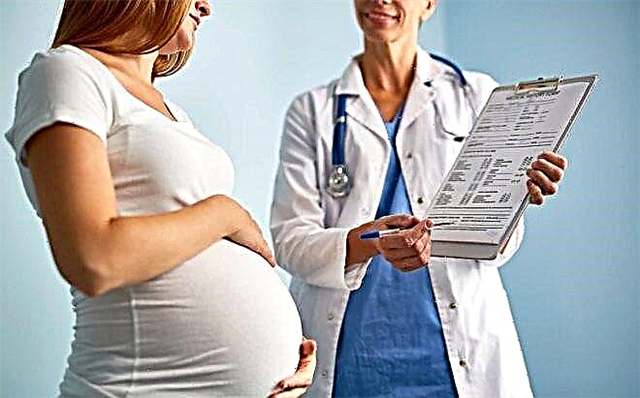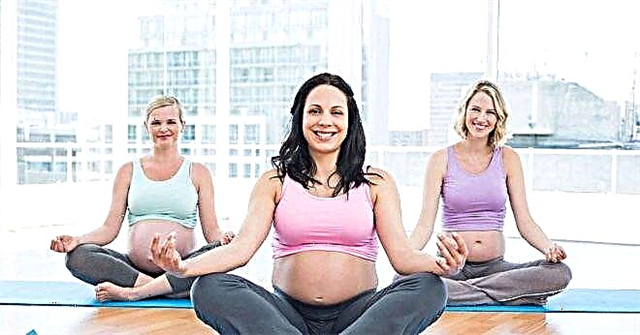
The onset of the third trimester means for a woman that she has entered the "home stretch" - childbirth is very soon. This article will help you not to get confused in the timing and correctly calculate when this final period begins.

Timing
Third trimester of pregnancy - this is the seventh, eighth and ninth calendar months of the gestation period... If we count as it is customary in obstetric practice, then half of the seventh, eighth, ninth and tenth months fall into the third trimester, since there are exactly 4 weeks in one obstetric month, which cannot be said about the calendar.
There is usually no way to establish the exact moment of conception, and therefore it is customary to count the gestation period from the first day of the last menstruation. In this way, the third trimester of pregnancy begins at 27-28 weeks of pregnancy, and when it ends, no one knows for sure - this question is purely individual... The beginning of the period is the same for everyone, and how long the trimester lasts depends on when the birth will take place.
In every third pregnant woman, according to statistics, the third trimester safely ends with childbirth at 38 weeks. In the period from 39 to 40 weeks, about 45% of women give birth, the rest either give birth before 38 weeks, or go to the maternity hospital at 41, 42 weeks.

Features:
The onset of the final third of the gestation period for a woman means that the easy period is over, and now, for quite understandable physiological reasons, it will be more and more difficult to bear a baby every day. The child has reached a large size, he continues to grow and gain weight, the woman herself has also pretty much put on weight. The uterus reaches its maximum size by 35-36 weeks - it has nowhere else to grow.
It is the large uterus that causes discomfort in the third trimester. It presses on the diaphragm, which leads to shortness of breath, squeezes the woman's stomach, which sometimes leads to unbearable heartburn, the squeezed intestine cannot function fully, which causes constipation and exacerbation of hemorrhoids. The load on the spine leads to back pain, the load on the legs leads to pain in the lower limbs, and sometimes to varicose veins. The influence of hormones supplements the picture of the everyday life of the expectant mother - relaxin leads to softening of the bones and ligaments of the pelvis, which causes the tailbone and pubic bone to hurt, the accumulating oxytocin enhances the training fights, anxiety and fears return, depression may develop.

The child is fully formed, he is well protected, so at the current time he is almost not in danger. It is already possible to take many medications that were previously prohibited.
The main danger at the current time lies in the possibility of the onset of fetal hypoxia, because the placenta reaches its maximum degree of maturity from the 34th week and begins to age, copes with its duties worse.
There is no need to rush things - the last weeks of pregnancy, although difficult for the mother, are necessary for the baby: the process of accumulation of surfactant is completed in his lungs, which is necessary to ensure the possibility of spontaneous breathing, the weight gained by the baby is not only pleasant to the eye chubby cheeks and butt, but also the opportunity effectively regulate your body temperature, keep warm after birth. These two traits are extremely important for a baby at birth. It is in the last weeks, starting from 32-34 weeks, that the baby begins to go through the most important process of learning adaptability - he has to change his habitat, and his small body activates adaptive abilities in advance.
Difficulties that women may face during this period:
- anemia;
- gestational pyelonephritis;
- fetal hypoxia;
- gestosis.
Compliance with all the doctor's recommendations will help to eliminate such complications.

Useful Tips
Simple recommendations from specialists will help to make the third trimester easier.
- Move more, do gymnastics, walk, walk, do all possible housework... Movement is not only life, but also effective preparation of the cervix for childbirth.
- Change your diet - add more vegetables and fruits, reduce the amount of foods high in calcium, it is better to replace red meat with fish or chicken breast.
- If the estimated weight of the fetus is large, stop taking multivitamins in the third trimester.
- Monitor your well-being... If there are signs of mucous plug discharge, leakage of water, intimate contact and taking a bath are prohibited, and if regular contractions appear or water flows out, you need to go to the obstetric institution.
- Diseases such as influenza or chickenpox at this time are dangerous not so much for the baby as for his mother, since they aggravate her already difficult condition. because contact with sick people should be avoided, and also pay sufficient attention to the prevention of infectious diseases.
- It is important to carefully count the movements every day.... If they suddenly become few, or the baby, on the contrary, is behaving too actively, a doctor's consultation is needed - both can be signs of hypoxia, that is, oxygen starvation of the baby.
- Practice correct breathing and exercise to relieve labor pain... This can be learned through courses for pregnant women, which operate free of charge in every antenatal clinic.
Do not try to induce labor yourself or speed up labor at home.




